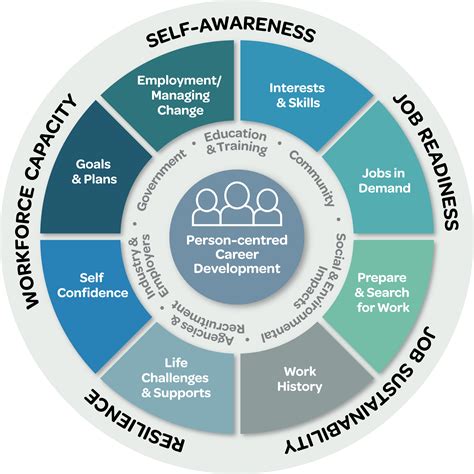Vice Provost Meaning

The role of a Vice Provost is an important position within the academic administration of universities and higher education institutions. While the specific responsibilities and titles of Vice Provosts may vary slightly from one institution to another, they generally serve as key leaders in academic affairs, reporting directly to the Provost or Chief Academic Officer.
Understanding the Vice Provost Role

Vice Provosts are senior academic administrators who support the Provost in managing and overseeing the institution’s academic programs, policies, and initiatives. They play a crucial role in ensuring the quality and effectiveness of the educational experience offered by the university.
The scope of their duties can be extensive and may include, but is not limited to, the following:
- Academic Program Development: Vice Provosts often collaborate with faculty and departments to develop new academic programs, review existing curricula, and ensure alignment with institutional goals and accreditation standards.
- Faculty Support and Evaluation: They may be involved in faculty recruitment, promotion, and tenure processes, as well as providing resources and support for professional development.
- Research and Scholarship: In some institutions, Vice Provosts oversee research initiatives, grant management, and scholarship programs, promoting a culture of research excellence.
- Academic Policy Implementation: They are responsible for implementing and enforcing academic policies, ensuring compliance with regulations, and maintaining academic integrity.
- Student Affairs: While student affairs may be primarily handled by a separate Vice Provost or Dean of Students, some Vice Provosts have oversight of student academic affairs, including advising, registration, and student support services.
- Budgetary and Resource Management: Vice Provosts often work closely with the Provost and other administrators to allocate resources, manage budgets, and ensure efficient use of funds for academic purposes.
- External Relations: They may represent the institution at external meetings, conferences, and collaborations, fostering relationships with other educational institutions, government bodies, and industry partners.
Variations in Vice Provost Titles and Roles
The title “Vice Provost” can be accompanied by various modifiers, each indicating a specific area of focus within academic administration. For instance, some common variations include:
- Vice Provost for Academic Affairs: Focuses on the overall academic experience, including curriculum development, faculty support, and student learning outcomes.
- Vice Provost for Faculty Affairs: Dedicated to faculty recruitment, development, and support, ensuring a strong and diverse faculty body.
- Vice Provost for Research: Oversees research initiatives, grant proposals, and scholarship programs, fostering a research-rich environment.
- Vice Provost for International Affairs: Responsible for global initiatives, study abroad programs, and international student recruitment and support.
- Vice Provost for Student Success: Centers on student academic support, retention, and success, often working closely with student affairs offices.
The exact responsibilities and title variations can depend on the size and structure of the institution, as well as the specific needs and priorities of the university.
Qualifications and Skills Required
Vice Provost positions typically require a combination of advanced education, academic experience, and leadership skills. Here are some common qualifications and skills that Vice Provosts may possess:
- Advanced Degree: A doctoral degree or terminal degree in a relevant field is often required, demonstrating expertise in their academic discipline.
- Teaching and Research Experience: Prior experience as a faculty member, with a strong record of teaching and research accomplishments, is highly valued.
- Administrative Experience: Serving in administrative roles, such as department chair or dean, provides valuable experience in academic leadership and management.
- Strategic Planning and Vision: Vice Provosts should have the ability to develop and implement strategic plans, aligning academic initiatives with institutional goals.
- Interpersonal and Communication Skills: Excellent communication and interpersonal skills are essential for collaborating with faculty, staff, and students, as well as representing the institution externally.
- Leadership and Management: Strong leadership qualities, including the ability to motivate and guide a diverse team, are crucial for success in this role.
- Budgetary and Financial Management: Proficiency in managing academic budgets and financial resources is often a key requirement.
The Impact of Vice Provosts on Academic Excellence
Vice Provosts play a pivotal role in shaping the academic landscape of universities. Their contributions extend beyond administrative duties, as they influence the direction and quality of education provided by the institution. By overseeing academic programs, supporting faculty, and promoting research, Vice Provosts ensure that the university remains at the forefront of academic innovation and excellence.
Furthermore, Vice Provosts often serve as advocates for students, ensuring that their academic needs and goals are met. They work closely with other administrators and faculty to create an environment that fosters student success and prepares them for their future careers or further academic pursuits.
| Institution | Vice Provost Role |
|---|---|
| Harvard University | The Vice Provost for Research oversees research strategy, promotes collaboration, and provides resources for researchers. |
| Stanford University | The Vice Provost for Teaching and Learning focuses on enhancing the quality of education, supporting faculty, and promoting innovative teaching methods. |
| MIT | The Vice Provost for Open Learning leads initiatives in online and distance learning, ensuring access to MIT's educational resources. |

What is the difference between a Provost and a Vice Provost?
+The Provost is the chief academic officer and holds the highest academic administrative position in a university. They oversee all academic affairs, including curriculum development, faculty matters, and research initiatives. Vice Provosts, on the other hand, are senior administrators who report directly to the Provost, each with a specific area of focus within academic administration.
What qualifications are typically required for a Vice Provost position?
+Vice Provost positions typically require a doctoral degree or terminal degree in a relevant field, along with substantial academic and administrative experience. Strong leadership skills, strategic vision, and the ability to manage complex academic programs are highly valued.
How does a Vice Provost contribute to student success and academic excellence?
+Vice Provosts contribute to student success by overseeing academic programs, supporting faculty, and promoting a culture of academic excellence. They ensure that students receive a high-quality education, have access to necessary resources, and are well-prepared for their future endeavors.



